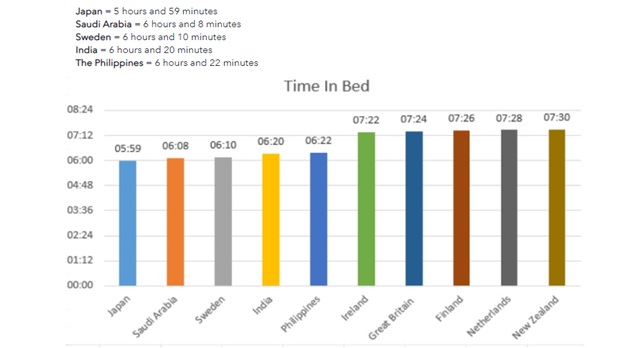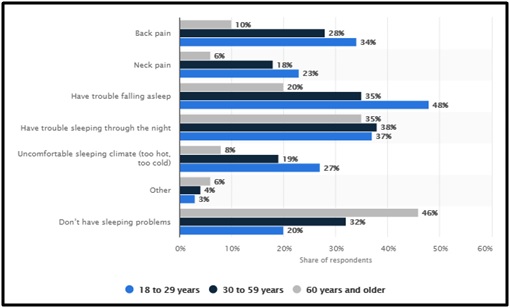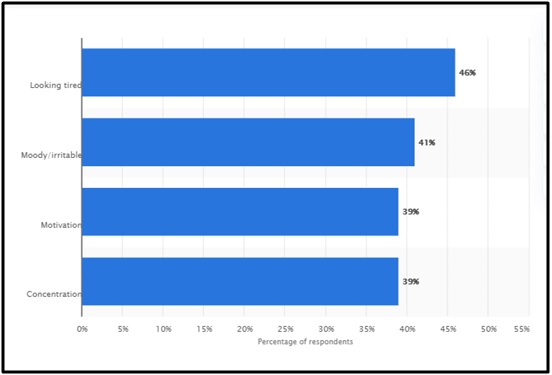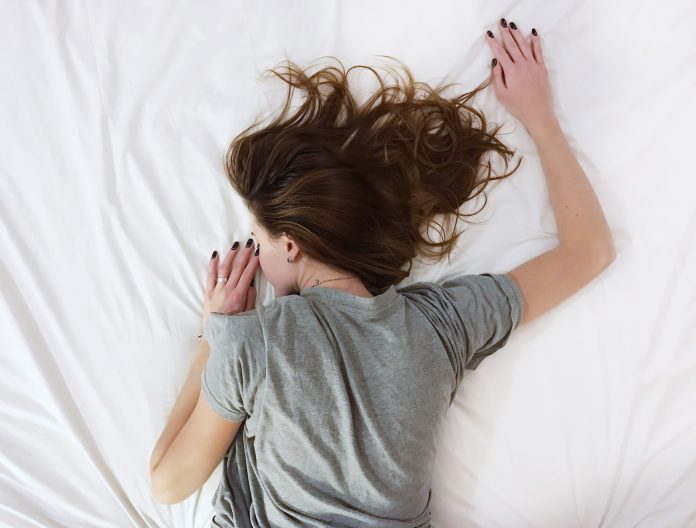Struggling with regular sleeplessness? It can be a sleeping disorder or also known as Insomnia. We might remember those times when we can fall asleep in an instant and still remain in the state of blissful slumber even at noon the next day. But now our sleep has become lighter and fitful, and when we are awake the next morning we might not always feel fresh. The lack of a good quality of sleep could be due to the changing sleep-wake cycle.
Insomnia disorder impacts our daily activities and leaves us with a very tired feeling in the morning time and drain the energy during the day time and then regardless of that feeling you are still not able to sleep at night. This cycle initiates again and has a bad effect on efficiency, energy, stress handling ability, and mood. Ignoring such issues may cause damage to physical health and if you want to stay healthy and perform until your best possible potential then quality sleep becomes a necessity.
“It’s not only you stifling a yawn; a worldwide lack of sleep is leaving us all falling asleep on the job and it’s an issue” (Horan, 2020). “
A recent survey conducted among 48 countries found that not a single country out of 48 managed to get an average of 8 hours of sleep at night. In Japan the national average was at 5hrs and 59 minutes, showing drastic low levels of sleep duration in the country. India is also ranked among the top 5 worst countries with lower than average hours of sleep.

As reported that around 50 to 70 million adults in the U.S. suffer from insomnia disorders and among them, 48% snores during sleeping. About 30 % of the population in the U.S. are insomnia patients, and around 10 % have chronic insomnia which makes it a sleeping disorder. One-third of the U.S. population stays awake a few nights every week and this is ascribed to the sleeping disorder.
A survey of the U.S. population revealed that 27 % of the 18 to 29 years population faces trouble in sleeping due to an uncomfortable climate in contrast to 8% of 60 years or above.

About 75-90 % of patients suffering from insomnia have a higher risk of GSD, pain conditions, and hypoxemia, and almost 40 % of patients with insomnia also suffer from psychiatric problems.
Dr. Ada Stewart stated insomnia is common among various age groups and may lead to the consideration of other related conditions like anxiety, medication issues, and depression. She said that sleeping pills must be used for a certain time only and one should not get addicted as those may turn the conditions severe.
Dr. Wallace E. Johnson in one of their studies reported that sleep deprivation results create problematic situations like errors at workplaces, car crashes, dysfunction of the immune system, etc. Insufficient sleep may also accuse obesity and heart problems.
It was reported that around 25 million of the U.S. adult population are obstructive sleep apnea patients, among them about 9 to 21% are women and 24 to 31% are men of middle age. It was estimated that about 70 % of students could not have proper sleep.
A global 2018 survey data on the impact of sleeplessness revealed that about 46 % of the respondents feel tired after having less than 7-9 hours of sleep.

5 reasons that you may have confronted while sleeping at night:
“Stop these common sleep stealers before they put your health at risk” – (Chicago Tribune)
- Stress: this could be the common reason for insomnia (for a short term), in such a situation the mind gets thronged with stress or worries. The daily life activities distract you, once you are freely settled into the bed, the mind is set free to recall the negativities. Overthinking and stressing over matters interrupts sleep and may also turn out to be a chronic stress factor.
- Consuming the wrong snack: Does your bedtime snack consist of chips or pizza? If that is so, then don’t feel astonished while lying and staring at the ceiling. Consumption of food ties loaded with proteins and fats right before sleeping overdrives the digestive systems and causes heartburn and you may face trouble in sleeping. Yet hunger pains may also trouble you during sleeping and at night blood sugar drop is also high.
- You may know the fact that caffeine consumption at bedtime is not a good idea, but only a few know that its half-life lasts for 3 to 5 hours which means only half of the dose gets reduced during sleeping hours and the other half remains within the body and may disrupt your sleep.
- Casual stroll before bedtime with your pet is good but sweat dripping, and heart-pumping exercise within 3 hours of bedtime is exhaustive. As you sleep both the heart rate and body temperature drops. Doing exercise before bedtime raises the body functions which stimulates the nervous system and you may find it tough while sleeping.
- Experts suggest maintaining a moderate room temperature at night but some try to save energy costs by switching off AC and thermostat which creates a stifling condition. Both utmost situations disrupt your sleep as one’s body requires to be slightly cool for refreshing sleep.
Treatment usually varies with the cause of the sleeping disorder and can be used as therapy. Non-pharmacological therapy, like group therapy or CBT (cognitive behavioral therapy) which is a one-on-one session, where a mental health counselor (psychotherapist or therapist) helps the patients to make them aware of various inaccurate and negative thinkings that allows the patients to understand the challenging situations in a better way and effectively responding to them. Other medical treatments include melatonin supplements, sleeping pills, cold or allergy tablets, antihistamines, etc.
There are several home remedies for sleeping disorders such as; restricting sleep, using techniques for relaxation, ameliorating sleep hygiene, etc. You should also avoid consumption of junk foods and alcoholic beverages, and should maintain a proper diet and have dinner 2 to 3 hours before sleeping. You should not be ashamed about taking advice from doctors about sleeplessness, and may also feel glad if it helps you to have a good sleep as it is preventative medicine.
Conclusion:
Inability to sleep or might be total lack of sleep is characterized by Insomnia disorder, ranges between 10-15% among the general population. Hence, it is a must to motivate patients to gain accurate knowledge about the complete process and also motivate doctors/practitioners to be open-minded while diagnosing and treating the patients. This is the responsibility of the doctor/practitioner to provide calm clinical support as the long process of assessment and treatment might be required to know the accurate cause.





